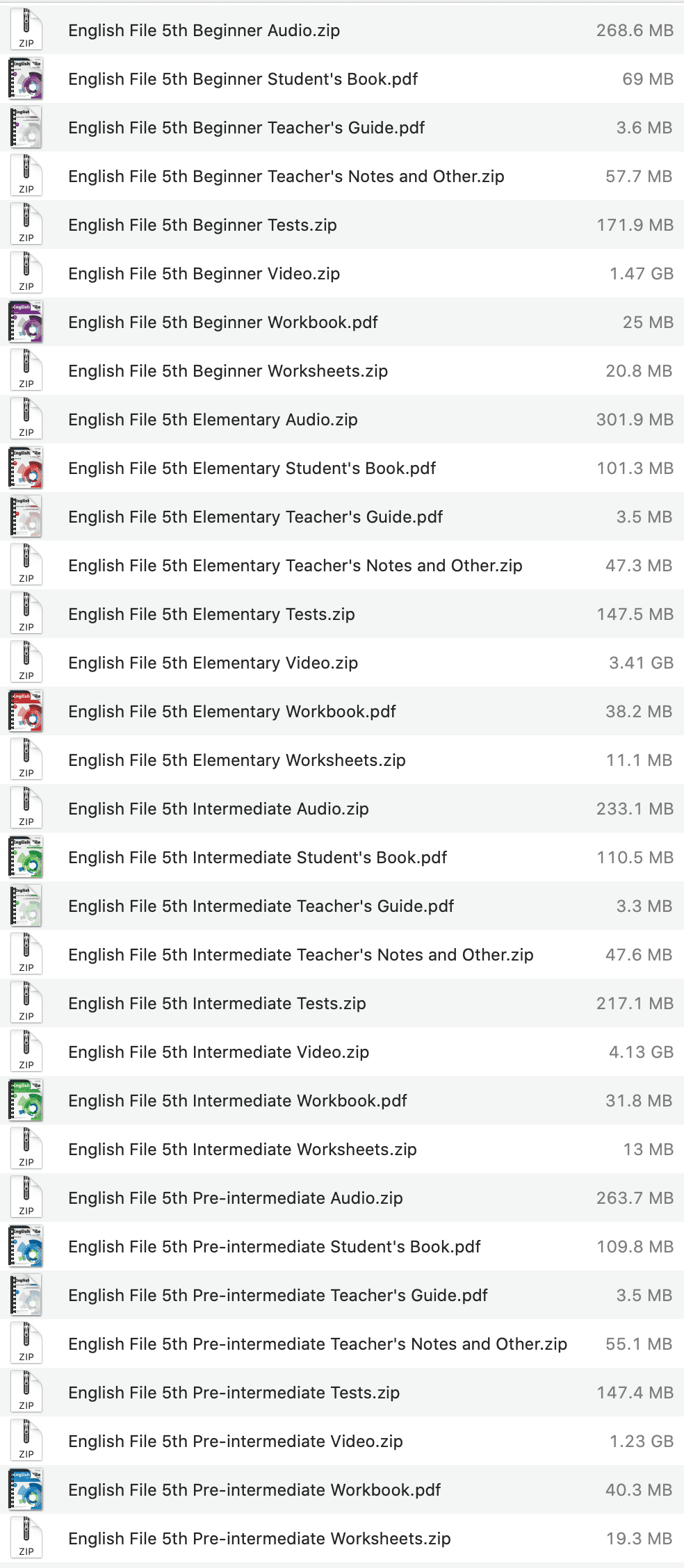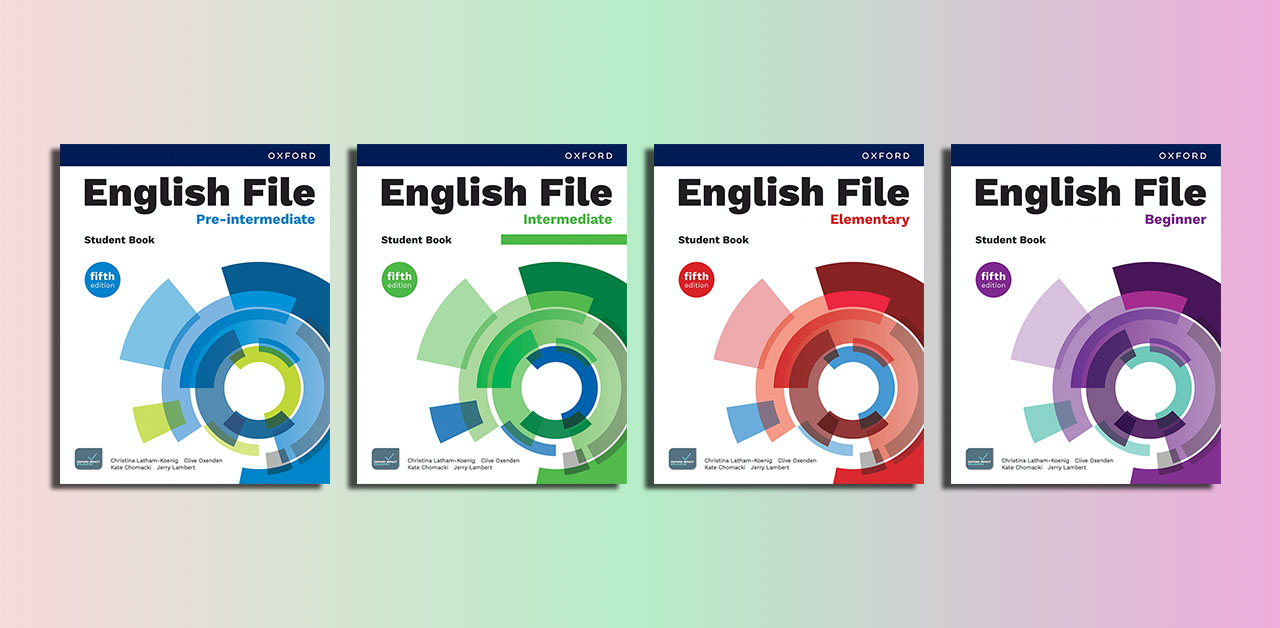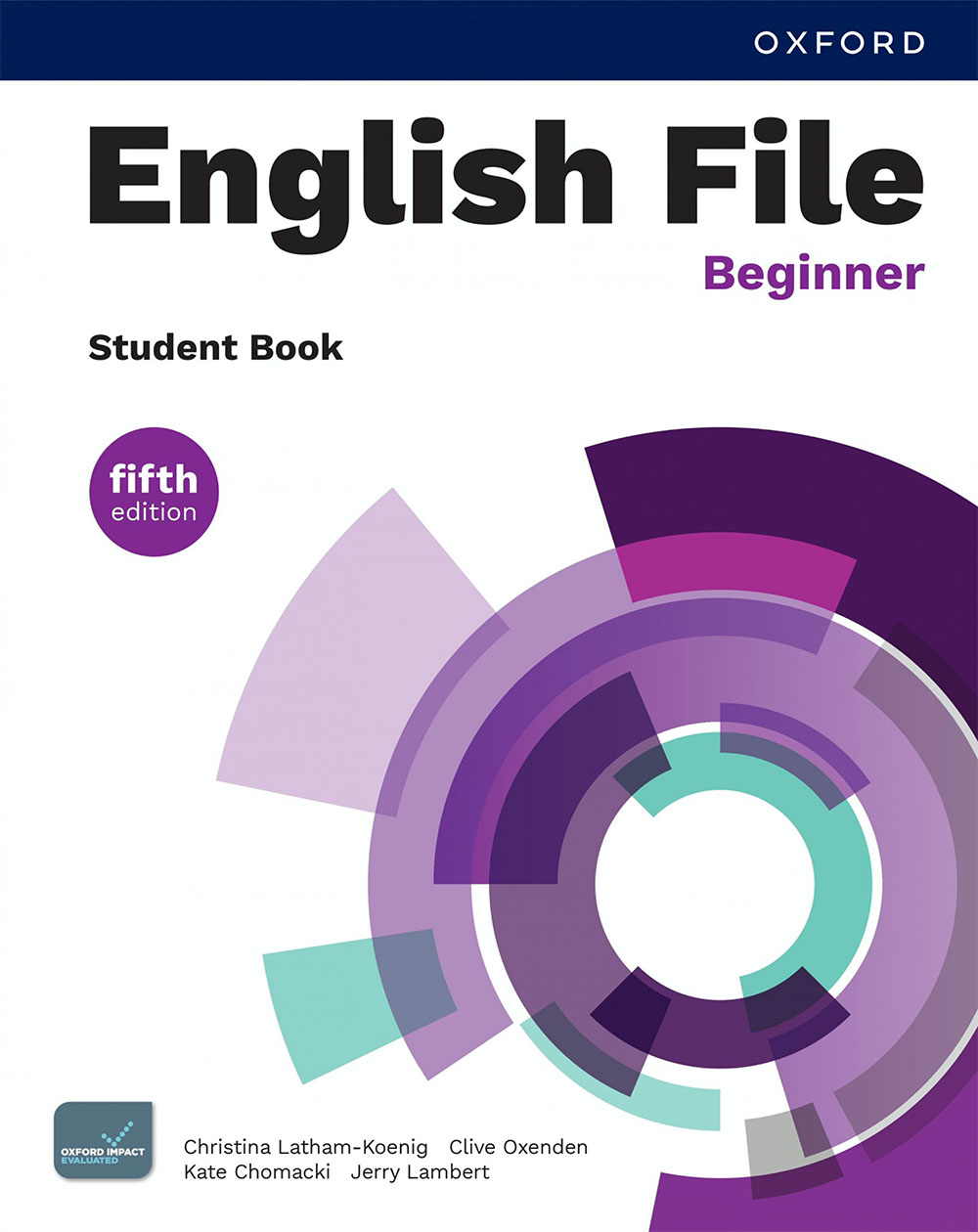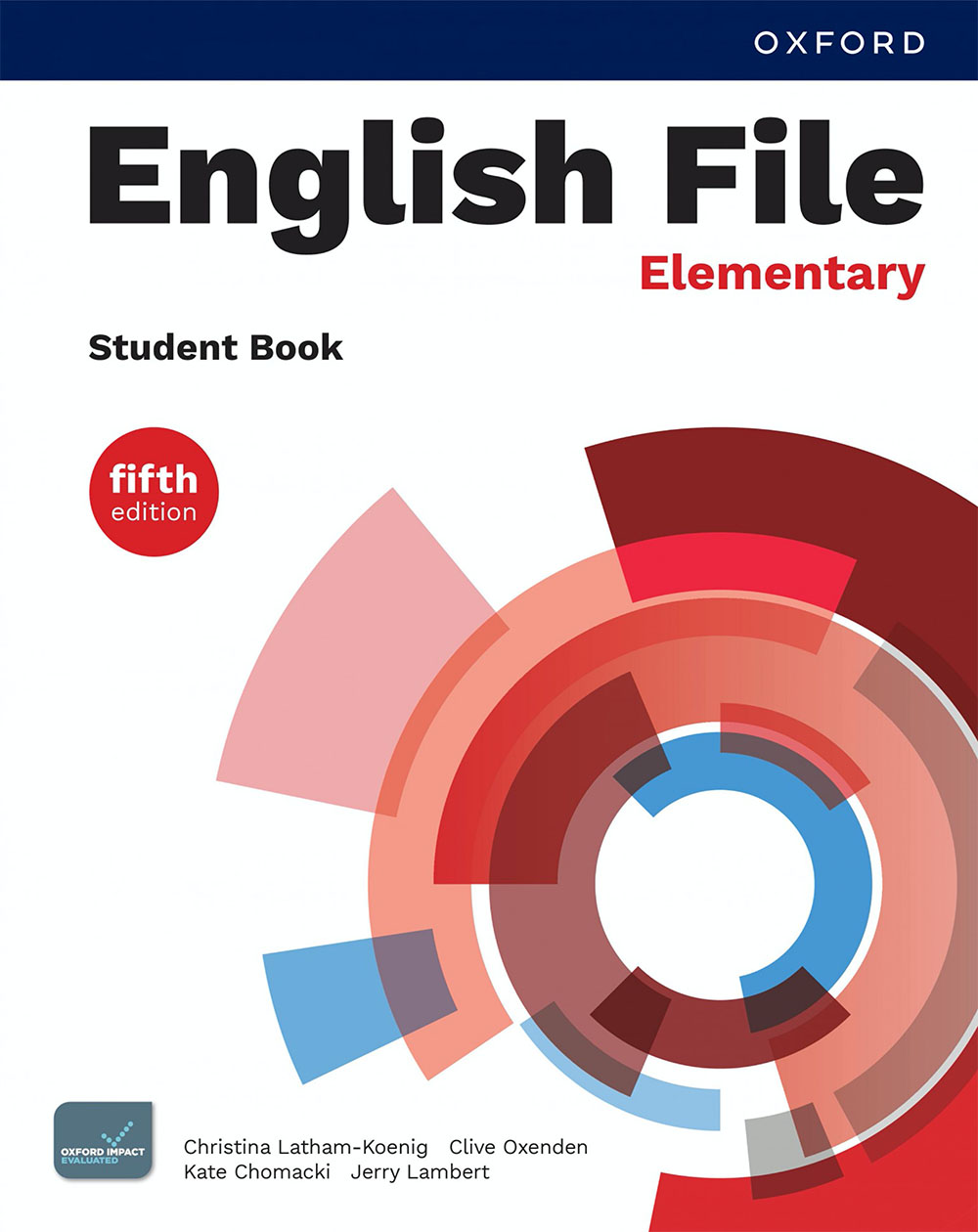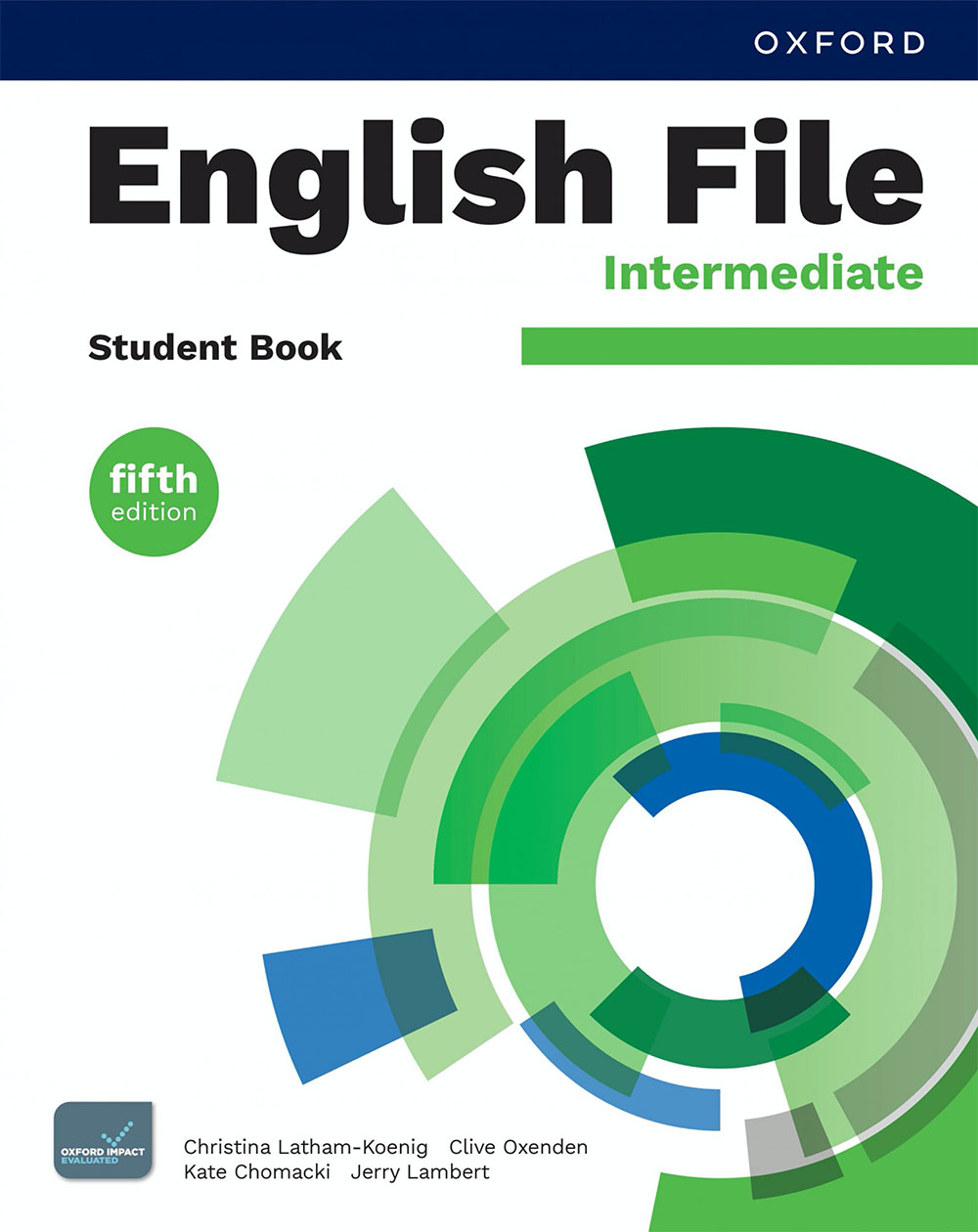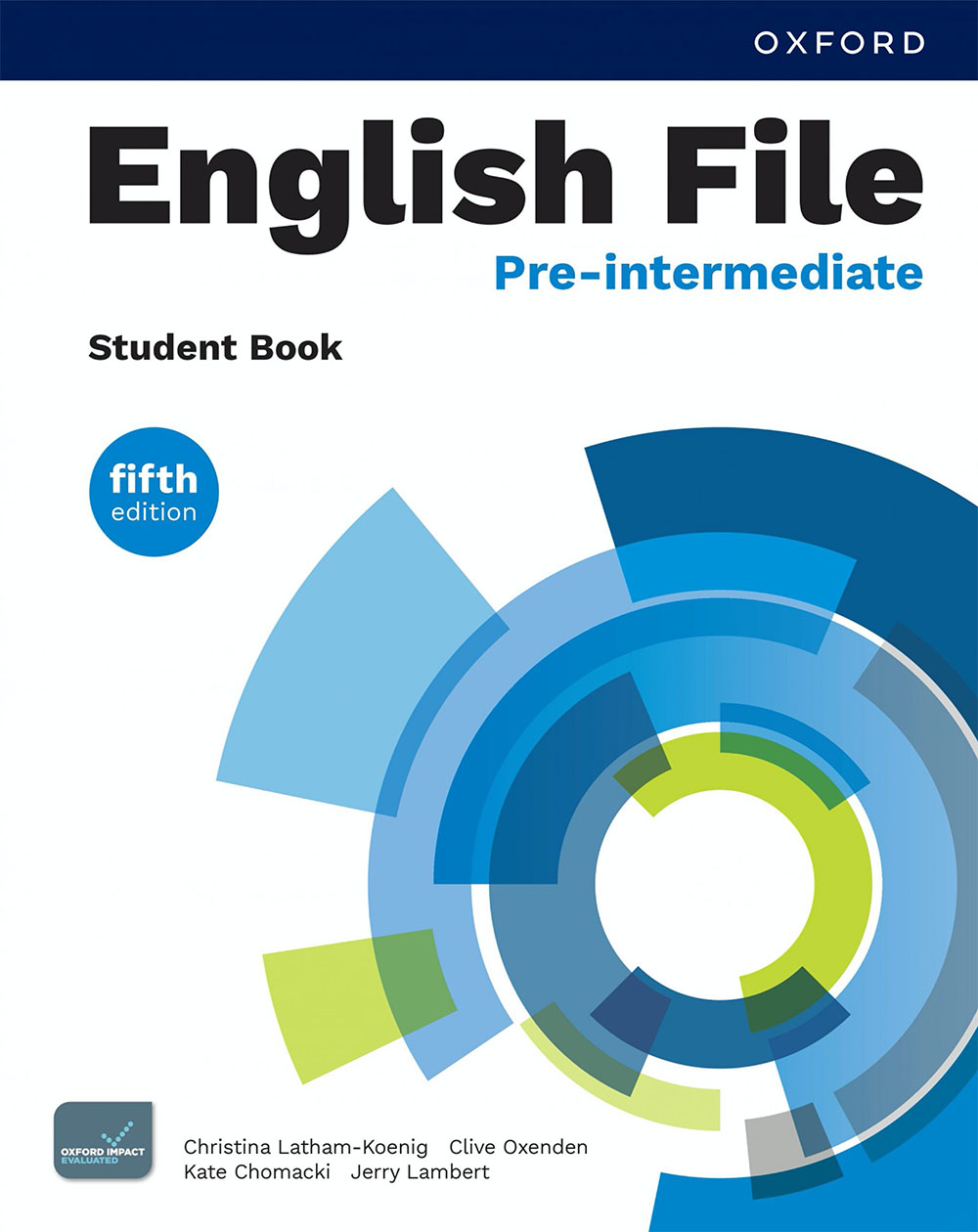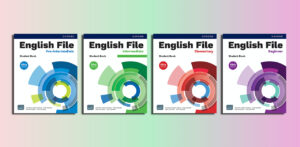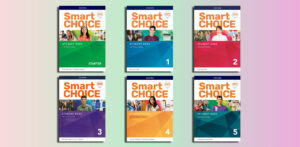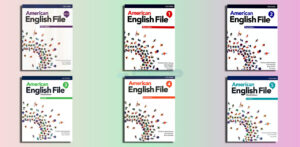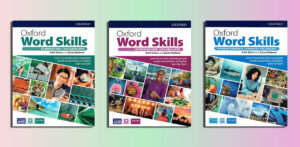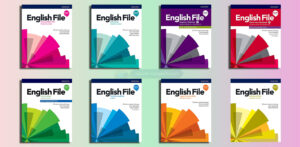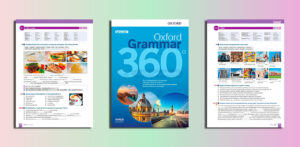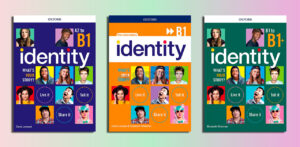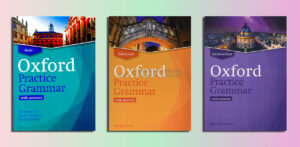Download, Oxford, Presentation
Download English File 5th Edition Pdf Resources (A1 – C2) 2025
English File 5th Edition (PDFs, Resources)
Beginner Level
English File 5th Beginner Audio.zip
English File 5th Beginner Student’s Book.pdf – Sample: Click
English File 5th Beginner Teacher’s Guide.pdf
English File 5th Beginner Teacher’s Notes and Other.zip
English File 5th Beginner Tests.zip
English File 5th Beginner Video.zip
English File 5th Beginner Workbook.pdf – Sample: Click
English File 5th Beginner Worksheets.zip
Elementary Level
English File 5th Elementary Audio.zip
English File 5th Elementary Student’s Book.pdf – Sample: Click
English File 5th Elementary Teacher’s Guide.pdf
English File 5th Elementary Teacher’s Notes and Other.zip
English File 5th Elementary Tests.zip
English File 5th Elementary Video.zip
English File 5th Elementary Workbook.pdf – Sample: Click
English File 5th Elementary Worksheets.zip
Intermediate Level
English File 5th Intermediate Audio.zip
English File 5th Intermediate Student’s Book.pdf – Sample: Click
English File 5th Intermediate Teacher’s Guide.pdf
English File 5th Intermediate Teacher’s Notes and Other.zip
English File 5th Intermediate Tests.zip
English File 5th Intermediate Video.zip
English File 5th Intermediate Workbook.pdf – Sample: Click
English File 5th Intermediate Worksheets.zip
Pre-intermediate Level
English File 5th Pre-intermediate Audio.zip
English File 5th Pre-intermediate Student’s Book.pdf – Sample: Click
English File 5th Pre-intermediate Teacher’s Guide.pdf
English File 5th Pre-intermediate Teacher’s Notes and Other.zip
English File 5th Pre-intermediate Tests.zip
English File 5th Pre-intermediate Video.zip
English File 5th Pre-intermediate Workbook.pdf – Sample: Click
English File 5th Pre-intermediate Worksheets.zip
| Name | Price | Buy |
|---|---|---|
| English File Beginner PDFs, Resources (5th Edition) | $10 | |
| English File Elementary PDFs, Resources (5th Edition) | $10 | |
| English File Intermediate PDFs, Resources (5th Edition) | $10 | |
| English File Pre-Intermediate PDFs, Resources (5th Edition) | $10 | |
| English File PDFs, Resources (5th Edition) - All 4 Levels | Original price was: $40.$35Current price is: $35. |
English File 5ed Presentation Tool Demo (Offline iTools)
Overview of the “English File 5th Edition” by Oxford
Contents
| ✅ Coursebook: | English File 5th Edition |
| ✅ Authors: | Christina Latham-Koenig, Clive Oxenden, Kate Chomacki, Jerry Lambert |
| ✅ Publisher: | Oxford University Press |
| ✅ Levels: | A1, A2, B1, B2, C1, C2 |
| ✅ For: | Adult, Young Adults |
| ✅ English type: | British English |
| ✅ Publication year: | 2025 |
The English File 5th Edition by Oxford University Press is a comprehensive English language learning course designed for adults and young adults, authored by Christina Latham-Koenig, Clive Oxenden, Kate Chomacki, and Jerry Lambert. It builds on the series’ proven methodology, emphasizing a balance of grammar, vocabulary, pronunciation, and skills development to foster confident communication. The course is available in multiple levels, from Beginner (A1) to Advanced Plus (C1/C2), and is set to be fully available in September 2025. Below is an overview based on available information:
Key Features
Enhanced Skills Syllabus:
- Focuses on the four core skills: reading, listening, speaking, and writing.
- Speaking is integrated into every lesson, with 90% of teachers in an Oxford Impact study reporting improved student speaking skills.
- Includes a variety of tasks to develop mediation skills, with a dedicated Mediation Bank for deeper exploration.
Video-Enhanced Lessons:
- Incorporates diverse video content, including documentaries, dramas, interviews, animations, vox pops, and teacher-generated videos.
- A new drama video story spans Elementary, Pre-Intermediate, and Intermediate levels, introducing functional and social English phrases through engaging narratives with cliffhanger endings.
- Sound Bank videos help students practice English pronunciation by modeling sounds.
Skills and Exam Confidence:
- The Student Book includes access to Skills Confidence (Beginner, Elementary) and Exam Confidence (Pre-Intermediate to Advanced Plus) via the Oxford English Hub, offering bite-sized practice in reading, listening, speaking, and writing.
- Exam Skills pages in the Workbook and personalized micro-lessons in Exam Confidence help students prepare for exams at their own pace.
Flexible Learning Options:
- Supports face-to-face, remote, or blended learning with digital packs accessible via the Oxford English Hub.
- Resources include e-books, Classroom Presentation Tools, audio, video, worksheets, and tests.
- The course is adaptable to varying lesson lengths (e.g., 60-hour courses) and includes split editions (Multipacks A and B) for shorter timetables.
Proven Methodology:
- Combines engaging, authentic texts and contemporary topics to motivate learners.
- Integrates grammar, vocabulary, and pronunciation practice to build communicative confidence.
- Continuous teacher feedback has refined the methodology, ensuring it meets classroom needs.
Digital Resources:
- The Oxford English Hub provides access to all digital materials, including the Student Book e-book, Workbook e-book, and Online Practice with progress tracking and instant feedback.
- The Say It: English Pronunciation app offers audio-visual Helvetica, sans-serif; text-align: left;”>audio-visual feedback for pronunciation practice.
- Teacher’s Digital Pack includes a Teacher’s Guide PDF, Classroom Presentation Tools, and additional resources like audio, video, and tests.
English File 5th Beginner Student’s Book
Who is suitable for “English File 5th Edition”?
The English File 5th Edition by Oxford University Press is designed for adults and young adults learning English as a second or foreign language. It is suitable for a wide range of learners due to its comprehensive approach and flexible structure. Below are the key groups for whom this course is ideal:
Learners Across CEFR Levels (A1 to C1/C2):
- Beginner (A1): Suitable for those starting with little to no English knowledge, focusing on basic vocabulary, grammar, and communication skills.
- Elementary to Pre-Intermediate (A1–B1): Ideal for learners building foundational skills, with engaging content to boost confidence in speaking and listening.
- Intermediate to Intermediate Plus (B1–B2): Appropriate for learners aiming to improve fluency, expand vocabulary, and handle more complex grammar.
- Upper-Intermediate to Advanced Plus (B2–C1/C2): Perfect for advanced learners seeking to refine their skills, achieve near-native fluency, or prepare for proficiency exams.
Students Preparing for English Exams:
- Those targeting exams like Cambridge English Qualifications, IELTS, TOEFL, or other standardized tests benefit from the Exam Confidence resources (Pre-Intermediate to Advanced Plus) and Exam Skills pages in the Workbook, which provide targeted practice and micro-lessons.
Adult Learners in Diverse Learning Environments:
- Classroom-Based Learners: The course’s engaging texts, videos, and speaking activities suit face-to-face group classes, with teacher resources supporting dynamic lessons.
- Remote or Blended Learners: The digital components, including the Oxford English Hub, e-books, and Online Practice, make it ideal for online or hybrid learning.
- Self-Study Learners: The Workbook, Online Practice with instant feedback, and the Say It: English Pronunciation app support independent study.
Learners Seeking Practical Communication Skills:
- Those who want to improve speaking, listening, reading, and writing for real-world use, such as travel, work, or social interactions, will find the course’s focus on functional English and mediation skills valuable.
- The drama video series and vox pops introduce practical phrases and cultural contexts, appealing to learners who want relevant, everyday English.
Teachers and Institutions:
- Suitable for educators teaching adults or young adults in language schools, universities, or private tutoring settings. The Teacher’s Digital Pack and Classroom Presentation Tools provide flexible resources for lesson planning and delivery.
- Schools or programs with varied timetables can use the split editions (Multipacks A and B) for shorter courses.
Learners Interested in Engaging Content:
- Individuals motivated by contemporary topics, authentic texts, and multimedia (e.g., documentaries, dramas, interviews) will enjoy the course’s lively and relatable material, which encourages participation and discussion.
Considerations
- Age Appropriateness: While primarily for adults and young adults, the content may not be tailored for very young learners (e.g., children under 12), as it focuses on mature themes and contexts.
- Access to Technology: Learners using the digital components (Oxford English Hub, apps) need reliable internet and device access, which may be a limitation for some.
- Exam Focus: While excellent for exam preparation, those needing highly specialized exam training (e.g., only IELTS Writing) might supplement with additional resources.
In summary, the English File 5th Edition is suitable for adult and young adult learners at any proficiency level (A1–C1/C2), whether studying in a classroom, remotely, or independently, and is particularly effective for those seeking practical communication skills or exam preparation.
English File 5th Elementary Student’s Book
The benefits of “English File 5th Edition”
The English File 5th Edition by Oxford University Press offers numerous benefits for adult and young adult English learners, teachers, and institutions. Its design emphasizes practical communication, engagement, and flexibility, making it a highly effective tool for language acquisition. Below are the key benefits, tailored to its target audience and features:
1. Enhanced Communication Skills
- Speaking Confidence: Integrated speaking tasks in every lesson, supported by an Oxford Impact study where 90% of teachers reported improved student speaking abilities, help learners communicate fluently and confidently.
- Practical Language Use: The course includes functional English phrases through engaging drama videos and vox pops, enabling learners to use English in real-life contexts like travel, work, or social interactions.
- Mediation Skills: A dedicated Mediation Bank fosters skills like summarizing, explaining, and collaborating, which are essential for effective cross-cultural communication.
2. Comprehensive Skill Development
- Balanced Syllabus: Combines grammar, vocabulary, pronunciation, and the four core skills (reading, listening, speaking, writing) to provide a well-rounded learning experience.
- Pronunciation Focus: Sound Bank videos and the Say It: English Pronunciation app offer audio-visual feedback, helping learners master English sounds and intonation.
- Skills Confidence: Available for Beginner and Elementary levels, bite-sized practice in all four skills builds foundational competence.
3. Exam Preparation Support
- Exam Confidence: For Pre-Intermediate to Advanced Plus levels, personalized micro-lessons and practice via the Oxford English Hub prepare students for exams like Cambridge English Qualifications, IELTS, or TOEFL.
- Exam Skills Pages: The Workbook includes targeted exercises to develop exam-specific skills, boosting learner readiness and confidence.
4. Engaging and Motivating Content
- Varied Multimedia: Incorporates documentaries, dramas, animations, interviews, and teacher-generated videos, making lessons lively and relevant to learners’ lives.
- Contemporary Topics: Authentic texts and discussion prompts spark interest and encourage participation, keeping learners motivated.
- Drama Video Series: A narrative-driven video story across Elementary to Intermediate levels introduces functional language through engaging cliffhanger episodes, enhancing retention and enjoyment.
5. Flexible Learning and Teaching Options
- Adaptable Formats: Supports face-to-face, remote, or blended learning with digital tools like e-books, Online Practice, and Classroom Presentation Tools, accessible via the Oxford English Hub.
- Split Editions: Multipacks A and B cater to shorter courses (e.g., 60-hour timetables), offering flexibility for diverse schedules.
- Self-Study Support: The Workbook, Online Practice with instant feedback, and digital resources enable independent learning, ideal for self-directed students.
6. Robust Digital Resources
- Oxford English Hub: Centralizes access to e-books, audio, video, worksheets, tests, and progress tracking, streamlining the learning experience.
- Teacher Support: The Teacher’s Digital Pack includes a Teacher’s Guide PDF, photocopiable activities, and customizable resources, reducing preparation time and enhancing lesson delivery.
- Mobile Accessibility: The Say It app and mobile-friendly hub allow learners to practice anytime, anywhere.
7. Proven Methodology and Impact
- Research-Backed: Built on continuous teacher feedback and Oxford’s expertise, the course refines its approach to meet classroom needs effectively.
- Engagement and Results: Teachers praise its lively lessons for improving student engagement, with the methodology proven to accelerate language acquisition and confidence.
8. Accessibility Across Levels
- Covers All CEFR Levels (A1–C1/C2): From Beginner to Advanced Plus, the course caters to learners at any stage, ensuring progression and continuity.
- Customizable Pace: Resources like Online Practice and micro-lessons allow learners to study at their own speed, accommodating diverse learning needs.
9. Cultural and Practical Relevance
- Real-World Application: Lessons connect English to everyday scenarios, enhancing learners’ ability to navigate global contexts.
- Cultural Exposure: Videos and texts introduce cultural nuances, preparing learners for authentic interactions in English-speaking environments.
Considerations
- While the course offers significant benefits, learners should note that the full digital experience will be available from September 2025, and early redemption of access codes may start the license period prematurely. For pricing or subscription details (e.g., SuperGrok or related services), check x.ai/grok.
In summary, the English File 5th Edition benefits learners by fostering confident communication, supporting exam success, and offering flexible, engaging resources for diverse learning environments.
English File 5th Intermediate Student’s Book
Effective learning strategies for “English File 5th Edition”
To maximize the benefits of the English File 5th Edition by Oxford University Press, learners can adopt effective strategies tailored to its structure, resources, and focus on practical communication, grammar, vocabulary, pronunciation, and skills development. Below are targeted strategies for adult and young adult learners across all levels (A1–C1/C2), designed to enhance engagement, retention, and progress.
1. Leverage the Integrated Speaking Opportunities
- Strategy: Actively participate in the speaking tasks integrated into every lesson, as these are designed to build confidence (90% of teachers in an Oxford Impact study noted improved student speaking skills).
- How: Practice dialogues, role-plays, and discussion prompts in class or with a study partner. Record yourself speaking using the Say It: English Pronunciation app to refine intonation and clarity.
- Example: After a drama video lesson, reenact scenes with a partner to internalize functional phrases (e.g., polite requests or social expressions).
- Why It Works: Regular speaking practice reinforces fluency and builds real-world communication skills.
2. Engage with Multimedia Content Actively
- Strategy: Use the course’s diverse video content (documentaries, dramas, vox pops, animations) to improve listening and cultural understanding.
- How: Watch videos on the Oxford English Hub with subtitles initially, then without, to challenge comprehension. Take notes on new vocabulary or phrases and discuss the content’s themes with peers or a teacher.
- Example: For the drama video series (Elementary to Intermediate), predict the next episode’s plot to engage with the narrative and practice speculative language.
- Why It Works: Multimedia makes learning immersive, contextualizing language in relatable scenarios.
3. Master Pronunciation with Targeted Tools
- Strategy: Focus on pronunciation using the Sound Bank videos and Say It app to improve clarity and reduce accents that hinder communication.
- How: Practice specific sounds daily (e.g., 10 minutes on vowel contrasts or stress patterns). Use the app’s audio-visual feedback to compare your pronunciation with native models.
- Example: Mimic a Sound Bank video’s pronunciation of tricky sounds like /θ/ (think) vs. /ð/ (this), then test yourself in conversation.
- Why It Works: Consistent pronunciation practice enhances intelligibility, a key component of effective communication.
4. Utilize the Oxford English Hub for Personalized Practice
- Strategy: Take advantage of the Hub’s Skills Confidence (Beginner/Elementary) or Exam Confidence (Pre-Intermediate to Advanced Plus) for bite-sized, tailored practice.
- How: Complete micro-lessons in reading, listening, speaking, or writing daily, focusing on weak areas. Use the progress tracker to monitor improvement and set weekly goals.
- Example: If struggling with listening, complete two listening micro-lessons daily and review incorrect answers to identify patterns.
- Why It Works: Personalized practice targets individual needs, ensuring steady progress and exam readiness.
5. Reinforce Learning with Workbook and Online Practice
- Strategy: Regularly complete Workbook exercises and Online Practice tasks to consolidate grammar, vocabulary, and skills.
- How: Dedicate 15–20 minutes daily to Workbook activities, focusing on Exam Skills pages for exam preparation. Use Online Practice’s instant feedback to correct mistakes immediately.
- Example: After a grammar lesson on past tenses, complete related Workbook exercises and check answers online to reinforce understanding.
- Why It Works: Repetition and immediate feedback solidify knowledge and build confidence.
English File 5th Pre-Intermediate Student’s Book
6. Create a Structured Study Schedule
- Strategy: Plan a balanced study routine that aligns with the course’s flexible structure, especially for self-learners or those using split editions (Multipacks A/B).
- How: Allocate time weekly for each component: 30% video/listening, 30% speaking/pronunciation, 20% grammar/vocabulary, 20% reading/writing. Adjust based on your level or goals (e.g., more speaking for fluency, more writing for exams).
- Example: Study 1 hour daily, splitting time between watching a video lesson, practicing pronunciation, and completing Workbook exercises.
- Why It Works: A consistent schedule maximizes exposure to all skills, preventing gaps in learning.
7. Engage with Mediation Activities
- Strategy: Use the Mediation Bank to practice summarizing, explaining, or collaborating, skills vital for real-world communication.
- How: After lessons, summarize a text or video in your own words to a study group or teacher. Practice mediating discussions by explaining cultural differences or simplifying complex ideas.
- Example: Summarize a documentary clip from the course in 3–5 sentences, then discuss its cultural context with a partner.
- Why It Works: Mediation enhances critical thinking and communication, aligning with modern language learning standards.
8. Supplement with Real-World Application
- Strategy: Apply course content to real-life scenarios to make learning relevant and memorable.
- How: Use phrases from drama videos or vox pops in daily interactions (e.g., ordering food, greeting colleagues). Join language exchange platforms or conversation clubs to practice with native speakers.
- Example: After learning polite requests in a lesson, practice them at a café or in an email to a colleague.
- Why It Works: Contextual application reinforces retention and builds practical fluency.
9. Collaborate and Discuss with Peers
- Strategy: Engage in group activities to leverage the course’s discussion prompts and collaborative tasks.
- How: Form a study group to discuss lesson topics, role-play dialogues, or debate contemporary issues from the Student Book. Use the Oxford English Hub’s interactive features for group assignments.
- Example: Debate a topic from a reading text (e.g., environmental issues) with classmates, using new vocabulary from the lesson.
- Why It Works: Peer interaction fosters motivation, diverse perspectives, and speaking practice.
10. Track Progress and Reflect
- Strategy: Regularly assess your progress to stay motivated and address weaknesses.
- How: Use the Oxford English Hub’s progress tracker to review performance in Online Practice. Reflect weekly on what you’ve learned (e.g., new phrases, grammar rules) and set specific goals for improvement.
- Example: After completing a unit, list five new expressions learned and practice using them in sentences.
- Why It Works: Self-assessment keeps learners focused and highlights areas for growth.
Tips for Success
- For Beginners (A1–A2): Focus on basic vocabulary and pronunciation, using videos and the Say It app to build confidence.
- For Intermediate Learners (B1–B2): Emphasize fluency through speaking tasks and real-world application, supplementing with Exam Confidence for exam prep.
- For Advanced Learners (B2–C1/C2): Deepen skills with mediation tasks, complex texts, and exam-focused practice to achieve near-native proficiency.
- Technology Access: Ensure reliable internet and device access for digital resources. Note that the full digital experience launches in September 2025, so plan study around available content or the free trial (Elementary Unit 7).

